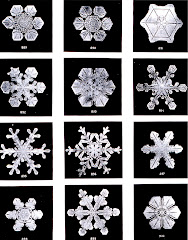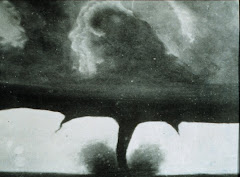Tor Ehler
Blue Lens
His legs worked at it from toe to knees; his hips made up for some of the thrust lost because of the drag his hands presented. The water was just cold enough to spur him awake and to shake off the morning haze. He gauged about ten feet overhead by the shimmer of light waves, the pattern of swimming fry, the pressure in his ears, and he kicked out harder, feeling the air thin in his lungs and pulse grow desperate. The surface didn’t rush to him. He didn’t break the water. He wasn’t reborn somehow, just shy of being saved, the hands being an issue now, snagged on something encrusted and slimy at once.
At the hillside café that overlooked Old Town and the castle district at a non-postcard angle, she met a strange tourist. By his accent of nearly swallowed Rs and foreshortened endings she guessed he was a Brit. He wasn’t. She asked if she could buy another coffee for him and he nodded, but didn’t ask her name. He stared at her dark red hair and hummed a tune she couldn’t place. It took his mouthing a word or two that did it: Tmavomodrỳ Svět, only a few bars of it, repeated over and over.
Do I seem strange to you?
She had been gauging the quality of light. The question stunned the breath of her own question and she didn’t recall what that had been until later, when her brother walked past them, winked, and kept on climbing up Nerudova Street.
Every place he visited held a bit of the unexpected. Hers was a familiar strangeness. The way she wrinkled her nose instead of smiling reminded him of something nearly forgotten. The fact of its being there was enough for him. She wrinkled her nose and sipped Campari Bitter while he stirred sugar into yet another espresso. This was enough for now.
There were things he couldn’t recall and reasons he didn’t care remembering, but watched the sun play across cathedral spires instead. Gray and brown, a bit of an odd pink in places gave way to the usual postcard colors as the sun rode lower. Maybe the pink was a tinge in his eyes. Maybe the color was seeping in from her dyed hair. It was pleasant.
He poured whiskey and watched her watch him in the periphery of vision. Their eyes met, maybe for the first time, since he did not recall their color, doubted he had every actually looked into them, and there was a flash, not of memory, but of fear. He knew it well. She was very pretty, seemed lithe, with the dark red of her hair. She had shed her jacket, revealing milky skin stretched over muscular shoulders. She took a seat on the sofa, from where a view of brick colored rooftops revealed itself and the multicolored neon of the streets below was subsumed by floodlights trained on the castle and various church towers. How different from his vague memory this was. Still, the recollection remained without any tangible detail.
She wrinkled her nose at a question he had not yet asked, kicked off her shoes and folded her legs. It was just warm enough in the place.
In the middle of the night he woke to glance at the clock, an instinct left over from some earlier time. Moonlight covered everything in the flat, reflecting blue off the sheets and furniture. The moon rode torn clouds, full and wet. The girl was asleep, but seemed more dead than peaceful, the way her mouth hung open, revealing a bluish tongue. Her hair obscured the eyes and nose. She had become someone else, even with one of her breasts revealed by a fallen sheet, skin tinged by moonlight, every aspect of the moment yet allowed his eyes to be tricked. All he saw was a makeshift bed of blankets and pillows on a gray carpet, a voluptuous figure curled to one corner, and outside, beyond wooden slats, only more blank glass.
She watched him pace before the wall of windows, go into the kitchen and disappear in the bathroom, take a drink of tap water, and sit on the chair opposite the bed. Something about his restlessness made her sad. Watching him she watched herself in his unguarded expressions. He was the perfect mirror.
He paced and sat, closed his eyes and seemed to breathe a sleeper’s rhythm. Finally he got up and put the kettle on, waited for the steam to bellow, and poured a cup of tea. The dissolving honey gave off a meadow smell.
Can you make one for me? she whispered, brushing the hair from her eyes, then became aware of bare skin and pulled up the sheet. She had been taking pictures for years. People bought her prints. Magazines printed her work, but only the palatable ones in which the subjects showed lines pleasing to the general taste for the artistic. The shots she liked the most were accidents and gifts. These were almost always of naked men.
There was this familiar thing in the way she moved and asked for tea. He boiled more water and stirred honey into her cup. It was a comfort to make tea for someone else. He was forgetting himself. The sky changed its light in gradations. The girl reached for her bag, moving gracefully with the shadowed navy sheet wrapped close. Familiarity faded. She rummaged through the black leather bag – it wasn’t a purse by any standard – and came up holding a camera, fiddled with its settings, and pointed it at him. Its mechanism whirred. There was no flash. She took a sip of the tea he had been holding out to her and returned the cup to his hand, then said, you don’t mind, do you? The politeness stunned them both.
A siren below cut through the moment. It faded as they moved closer and her arms came up, fingers adjusted focus and pressed buttons. She shot a series while falling. He was in full retreat before she stopped, took the viewfinder from her eye and lay the camera aside.
I’m done, she lied.
When the bearded man in a close fitting leather coat tied his hands all he could think of was the smell of leather and its likeness to fresh honey. So far as comforts went, this was precious little. They hadn’t done more than take his passport and the bills in his wallet. Maybe they didn’t intend to use their guns. He would do nothing stupid. The balding one in a greenish suit that shimmered like a fly’s metallic skeleton laughed and put away his piece. Maybe there was something he recognized in his victim. Maybe it was something else that made his captors laugh. When they stopped laughing, both got into the compact sedan. The motor turned and reverse lights shone. Maybe he had taken a step backward. The tires spit gravel. A few pebbles stung his face and neck. He took too many steps back.
She waited, cautiously looked through the flat, made another cup of tea, but the urge to see the morning’s work overtook her patience. She left a note with her mobile number. The falling shots were exactly as she had hoped they would be. Blue light flooded the retreating limbs and face.
_____
Tor Ehler received the Ph.D. in Literary Studies from the University of Denver and the MFA in prose from Naropa University. His most recent writing has been published in Contango Magazine, Third Wednesday, and Marginalia. He teaches writing and literature in Denver, Colorado.
_____
RECONFIGURATIONS: A Journal for Poetics & Poetry / Literature & Culture, http://reconfigurations.blogspot.com/, ISSN: 1938-3592, Volume 4 (2010): Emergence











No comments:
Post a Comment